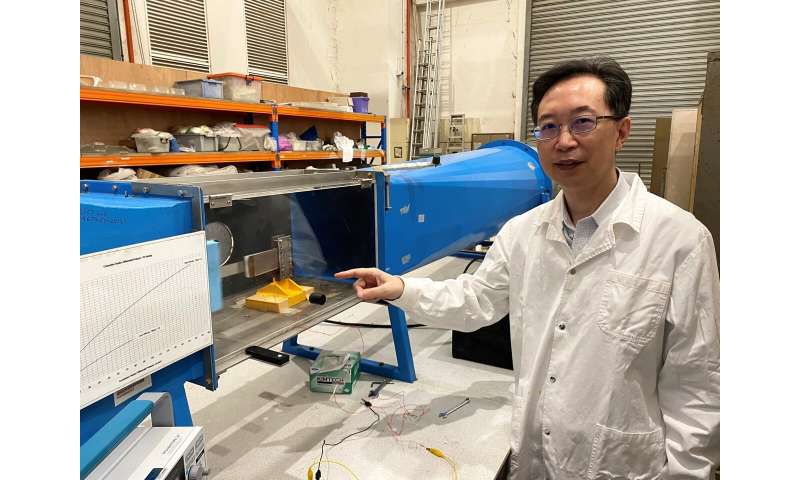Best of Last Week—Nobel prizes awarded, harnessing energy from a breeze, primordial molecules form peptides

It was a good week for physics and chemistry as Nobel prizes were awarded to Alain Aspect, John Clauser and Anton Zeilinger for proving that tiny particles can retain a connection with one another even when separated—they were the first to prove that entanglement exists. Another trio, Carolyn Bertozzi, K. Barry Sharpless and Morten Meldal won the chemistry prize for their work involving "click chemistry," allowing for new ways to explore a wide range of research endeavors.
In technology news, a team at Nanyang Technological University, designed and built a low-cost device to harness energy from the wind, even gentle breezes, and it can also store that energy in a battery. And a team of researchers from Heriot-Watt University, University Paul Sabatier and the University of Sussex, respectively, developed an AI-based device equipped with a laser that could be used to shoot and kill roaches automatically. Also, a pair of researchers at the University of Houston, Sina Jafari Ghalekohneh and Bo Zhao, developed a solar harvesting system with the potential to generate solar power 24/7. They proposed a nonreciprocal solar thermophotovoltaic system that uses an intermediate layer having nonreciprocal radiative properties. And a combined team from Pohang University of Science and Technology and Ulsan National Institute of Science and Technology, developed an EV battery that can run for 630 km on a single charge.
In other news, a team at Hokkaido University found that use of commercial mouthwashes could reduce SARS-CoV-2 loads in the mouth, possibly reducing the degree of symptoms experienced by those infected. And a team with members from the University of Copenhagen, Instituto de Física Fundamental IFF-CSIC and Ruhr-Universität Bochum, devised a new method to enable efficient interactions between photons—possibly leading to a breakthrough in prevention of propagation loss when sending qubits over long distances. Also, a large study conducted in the U.S. confirmed that mRNA boosters extend COVID-19 protection but wane over time. And finally, a team at Purdue University demonstrated that primordial molecules, simple amino acids, can spontaneously form peptides—the building blocks of life.
© 2022 Science X Network